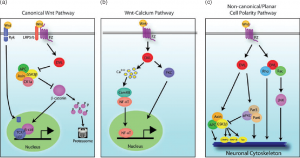Imagine going through your life as a healthy kid, both physically and mentally, and then one day everything changes. You start to hear voices from people who are not visually present – you start to hallucinate – and you develop an intense distrust of people you have interacted with and had relationships with for years. Schizophrenia does not look like this for everyone and not everyone has a sudden onset of symptoms, but these occurrences are very common with many people living with schizophrenia.
A Journey to Being Diagnosed with Schizophrenia
Tanara was diagnosed with Schizophrenia at 27, but the years leading up to that diagnosis were not easy. Five years prior to her diagnosis, Tanara developed symptoms of paranoia, hallucinations, and hearing voices. These symptoms persisted, and the next year she was hospitalized, followed by being given series of medications. Her symptoms stopped, and she thought everything was back to normal. This cycle of symptoms, medication, and a seemingly resolved mood disorder happened again over the next two years or so. Then, a breaking point led to her diagnosis with Schizophrenia.
Tanara lost her grandmother and suffered a hysterical breakdown, followed by being jailed over a fight with a neighbor. She was ordered to go to a psychiatric hospital where she was diagnosed with schizophrenia. From then on, she began a medication regimen and therapy to learn about and cope with her symptoms, and from there she began to take back control over her life.

Now, Tanara has a job where she is thriving, and she is more hopeful than ever about her future. Being able to recognize her triggers and knowing that schizophrenia doesn’t define her is crucial for her continued success. (To read Tamara’s full story, click here.)
Misconceptions about Schizophrenia
“People with schizophrenia are always dangerous.”
Reality: It is rare for people with schizophrenia to be violent. Actually, people with schizophrenia are more often victims of violence than the ones committing violent crimes.
“People with schizophrenia need to be in a hospital.”
Reality: Modern treatment methods are a combination of (but not limited to) medication prescriptions, out-patient therapy, and various lengths of hospitalization.
“Bad parenting causes schizophrenia.”
Reality: There is no evidence that parenting methods have an effect on the chances of developing schizophrenia. Genetics, however, do come into play in the chances of developing schizophrenia.
“Schizophrenics have multiple personalities.”
Reality: While a confusion of reality and fantasy may happen, multiple personalities are not part of the schizophrenia diagnosis.
You can read more about the misconceptions about schizophrenia here.
The Science Behind Schizophrenia
The exact processes of Schizophrenia are unknown, but momentous steps have been taken in determining exactly what causes this disorder and how the disorder actually affects the chemistry of the brain.

The various wnt pathways are depicted. Click here to read more about these schematics.
One pathway that is implicated to have a major role in understanding schizophrenia is the Wnt signaling pathway. The Wnt signaling pathway is dependent on a Wnt ligand binding to its receptor so to promote the proteins APC and Disheveled to gather and dissociate the glycogen synthase kinase 3 b (GSK3b), which is a destruction complex targeted at keeping b-catenin phosphorylated. b-catenin maintaining its phosphorylated state leads to the decease in concentration of cytosolic b-catenin, which ultimately affects the initiation of T-cell factor/lymphoid enhancing factor (TCF/LEF)-mediated gene transcription.
